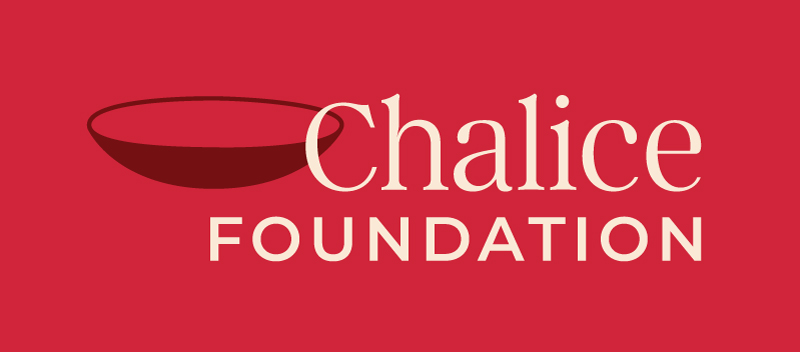A decade ago, I participated in a Red Tent gathering. In the circles, women spoke about their menarche (the time they started bleeding). From different cultural lineages and cohorts (age groups) many shared similar responses to their own first bleed: Few received a hug or a present; some experienced very confusing messages like “a kiss and a slap” one after the other! Quite a few were warned that what this means is they need to be careful to not fall pregnant – with no further explanations.
Most, however, experienced their mother as being matter of fact: “this is where we keep the pads” “this is a tampon” with little to no information about the actual felt experience they are likely to have from now on, for the next approximately forty years! Interestingly, the more secular and contemporary of modern Western culture the mother was, the less emotional or ceremonial was her response.
At this gathering, we spoke about how the absence of this rite of passage felt to us. How the lack of lack of celebration, knowledge, and instruction. Many cried and mourned the absence of this momentous transition and the instruction of menstruation being an entire cycle of experience: That menarche is, indeed, an initiation into a new phase of life.
Notably, though all of us were Jewish women, we did not dwell on the religious attitudes to the week of menstruation. We knew though that our religious sisters were rendered ‘impure’, ‘defiled’ and required to be physically distant from the men around them. Not only are they prohibited from any physical contact, they are not to sleep in the same bed as their partners, or to drink from the same glass. I do recall once that my friend and I, secular girls, saw a religious man in the street. We were aware that he is prohibited to walk between two women just in case we were bleeding and would contaminate him with our impurity! Cheekily, defiantly reacting to this discrimination, we split our way and surround him as we walked past. (By the way, today I regret doing this but those were the tools I had then.) Religion permeates secular society, we know this as the source of the attitudes towards menstruation in modern Western society is biblical.
We then started building knowledge: how we felt at different phases of the month, what women did to honour their bleed, we learned to rest and be nourished and cared for by the older women in the circle. We continued to meet for several years.
I began tracking my menstrual cycle regularly. It was astounding to notice how reactive I was at the end of week 3, how inward I became at week 4, but also how for a few days I was feeling quite sexual (I learnt that this is likely do to with the drop of estrogen and progesterone bringing the stable testosterone levels to the forefront). Then, I’d bleed, and a heavy fog dimmed my thoughts and requested I draw inward during week 1. What a repeated delight to notice my energy rising for week 2 and how open, social and sexual I would feel again!
Cyclicality has everything to do with life. Both the inner human experience and the external world is governed by cycles: the daily 24-hour cycle, the lunar cycle, the seasons, human existence itself and of course the menstrual cycle. How then could our rhythms of sexuality be any different?
As a clinical psychologist, I now listen deeply to menstruating clients and notice their wellbeing as it fluctuates in intense and subtle levels. Themes emerge and show similarities between my clients on different menstrual and life stages. I found that knowing the day where my clients are on their cycle impacts their view of themselves and others in a profound way.
Increasingly, I was getting upset: How could it be that no one was teaching this in psychology courses?! As it became natural for me to ask where someone is in their cycle, I realised that most don’t know where they’re at, unless they just started or finished bleeding. I also started to inquire deeply about client’s Red Thread – which is the history of menstruation in one’s ancestry. Afterall, I was well trained in intergenerational trauma and feminist therapy.
With just a bit of me teaching (which we call Psychoeducation in therapy), clients noticed that they feel different in their body, their emotions as well as their mental focus and articulation shifts as their hormones fluctuate. I’ve noticed that even their spiritual and social functioning changes with each phase of their menstrual cycle.
Over time, then, I couldn’t help wondering, how does this relate to the whole experience of sexuality? Is it different for those who menstruate and those who don’t? For those with a vulva and those who were born with the female sexual system?
I researched this for a while: Reading, attending sexual embodiment workshops, practicing on myself, listening and exploring this with my clients. It turns out, that at different phases of life and on various days of the cycle, those who menstruate and become aware of the hormonal experience in their body, desire differing sexual experiences at various times in their cycle. This is so important and valuable to know!
It dawned on me that some important themes need be integrated towards radically shifting young people’s pleasure experiences. Menstrual awareness, embodied consent, somatic experiences, trauma, mindfulness to body. These are important teachings that need to be taught, understood, and experienced so that they can be applied skilfully in many areas of life. I found that these teachings are abundantly on offer online and in books but separately, requiring dedicated research, and are not available as an integrated body of knowledge for young female folk.
I thought if they did know this though, even better! If both they and their mothers knew they’d be able to navigate life so much more effectively.
To illustrate: say you are on Day 6 of your menstrual cycle (counting 1 from the first day of blood flow). You’re a bit fatigued after bleeding, when you felt agitated, achy and tired. You didn’t want to go to that party or even talk at all then. But now, on Day 6, though still mellow, you’re ready to hang out with your bestie or maybe even go out on a romantic date. Even some touch could be nice. How much of it though? And how do you make sense of all of this let alone clarify it to your date? What parts of your body would you want to have stroked or cuddled? How would you explain to your friend or lover how this is for you?
My suggestion is that you start by noticing the changes as the days of your cycle go by. Start by counting on the first day of a full bleed. Try to make just one change towards more rest on that first week. Move out of it gently and move along to week 2: that’s the rising part of your cycle. Your energy is likely to slowly increase… Heading into your third week (on average day 14-21) pay attention to the descent part this week and week 4. Then again, week 1 will arrive: cycle by cycle you can prepare. If you want to learn more, research “menstrual awareness and sexuality” and other combinations.

Dr Tammy Ben-Shaul
Dr Tammy Ben-Shaul is a clinical psychologist who practices with a feminist and relational framework for over 20 years. Tammy’s work is integrative as she is also a yoga and meditation teacher. She’s been learning from teachers around Australia and the world about menstrual awareness and embodied sexuality. Mostly though, she loves talking to anyone who wants to hear about changing the current social order (patriarchy) into a holistic experience for all sentient beings.


